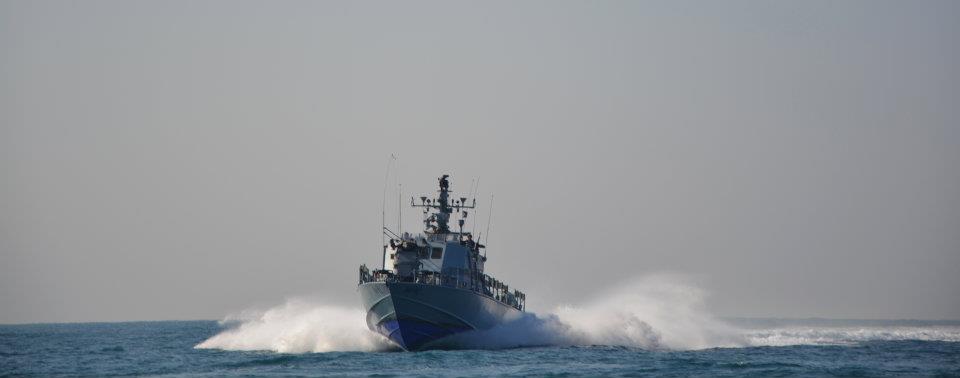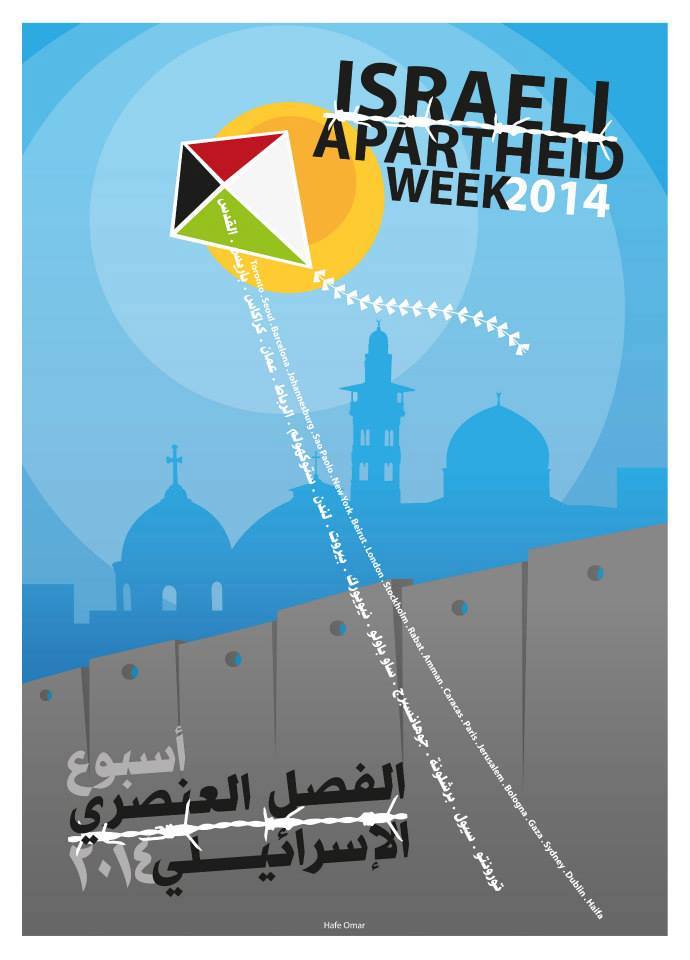Tag: Israeli Apartheid Week
-
Local Israel boycott part of Gaza’s “resistance mentality”
8th March 2014 | The Electronic Intifada, Joe Catron | Gaza City, Occupied Palestine Agricultural organizations in the Gaza Strip are working with academic and other civil society groups to prepare for Israeli Apartheid Week (IAW). Local events, as part of the boycott, divestment and sanctions (BDS) movement, will run from Sunday, 9 March through Thursday, 13 March in the besieged coastal enclave. “On…
-
A specter is hunting Israel: the specter of the BDS movement
6th March 2014 | International Solidarity Movement, Marco Varasio | Gaza, Occupied Palestine While Israeli ministers are discussing the usage of lawyers and the Mossad to fight boycott, divestment and sanctions (BDS), in the besieged Gaza Strip, like in 250 other cities around the world, activists, students and representatives of organizations are preparing for the tenth annual Israeli…
-
Video from Gaza: Israeli Apartheid Week – 2014
22nd February 2014 | Israeli Apartheid Week – Gaza Strip | Gaza, Occupied Palestine



